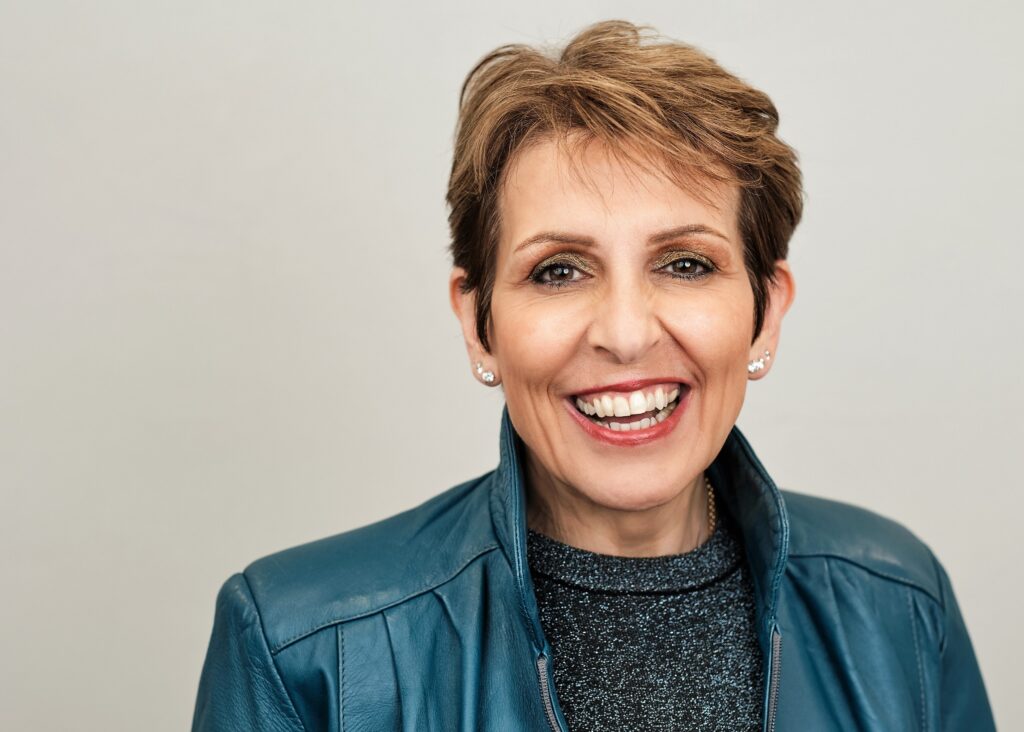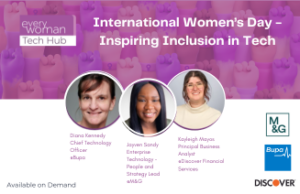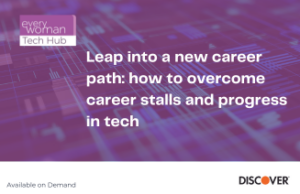
Chief Information Officer at SUSE, Christine Ashton has forged a long and successful career in IT by taking calculated risks to move roles and evolve her skills — and mitigating the perceived risks of being a woman in a male-dominated industry. We talked to her about the importance of open, inclusive workplaces and how we need to stop seeing risk where there is difference to achieve the true potential of diversity.
How do you really rise up as a woman in tech?
I’ve always been aware of where I could really add value and I’ve always worked across the interface between IT and business because IT always needs to translate what it’s doing in terms of business benefits. I’ve always made my own value case. I started out as a chemist and I remember trying to move into IT and being told, ‘You’re not very techy, are you?’ I replied no — but pointed out that I was a member of the British Computer Society and I could talk to technologists. Typically, when someone is recruiting, they’re probably more interested in getting a person with passion that can grow, than they are filling the ‘nth degree’ of the job spec. We’ve also all got to be committed to creating more inclusive environments to rise up. It’s so easy to hire people in your own image because for some reason people see that as lower risk. One of the important things as a leader is to look at how you reduce that perceived risk. When people don’t get jobs, often the reason given is, ‘We didn’t see you as a deliverer’ or, ‘We didn’t see you being able to fit with the culture’ but what they’re really saying is, ‘We saw you as a risk’. If you wanted a job, but didn’t get it, you’ve got to ask yourself, ‘What was the risk they saw’, what were the pros and cons — but also actually are those pros and cons about you, or are they about the way the environment is structured? And I think we probably don’t do enough of that.
Is it a risk in your career not to be confident in yourself and your abilities?
There is an adage that if you’re a minority you’ve got to be twice as good in the workplace, and you overwork as result. I’ve done that — and tried to make myself perfect to be accepted. I do think confidence is not just a belief, but an understanding of our own abilities and we should spend more time understanding what we really are capable of. I interviewed a woman years ago who was coming back to work after a break, and she was brilliant. I had another more senior job available and asked her why she hadn’t applied for it. She said, ‘Well, you’re looking for somebody at £60K a year’ and I said, ‘So?’ In the end, I hired her and paid her the money because once I got talking to her, I realised what she hadn’t done was translate her skills and abilities as a value case and put a price on them. And again, if we’re talking about risk, if you think ‘Well, I’m only worth £30K a year’, then somebody else is going see that as a risk because they’ll say, ‘Well, the market rate for this job is £60K’.
When have you taken a risk that’s moved you forward in your career?
In my career, I’ve taken calculated risks. Originally, I was
I’ve taken calculated risks. Originally, I was a chemist in the water industry; when I moved into telecoms I thought, telecoms is a network a bit like water, except it’s electrons, not water molecules, so I should be able to deal with the business model. My first job as a CIO was in a chemicals company and because I understood chemistry and process control, I thought to myself, ‘I’ll probably be able to get to grips with that pretty quickly’. The company had just been carved out from a bigger business and needed to install a new ERP and to merge the company together. I’d done a lot of that type of work and felt I could visualise that. My career has been a Rubik’s Cube, if you like, in that I only moved one side or one ‘variable’ at a time, and I’ve consciously done that. If you’re conscious of the risks that you’re taking, and understand them, it enables you to be confident about your decisions.
Are there any risks you wish you’d taken in your career?
There were times when I probably should have stayed a bit longer in a job. As women, we think we’ve got to work hard all the time, and it’s all about cutting and thrusting, but what I should have done was relaxed into some jobs a bit more. And even if the job only took up 60% of my time, I should have spent more time noodling with the business, rather than thinking, ‘Actually, I can do this job in 60% of my time. I’d better find a harder job.’ I’ve made a couple of sideways moves due to family issues, but I don’t regret ever doing that. When we look at somebody’s CV and see a gap or a sideways move, we can immediately see that as a risk and dream up all sorts of stuff to fill it — rather than having a conversation with the person so they can help us understand the way they approach their work. People could see it as a risk that I’ve moved about a lot on my CV, but it could be an opportunity — this person’s seen a lot of different scenarios and it could be like hiring a very experienced consultant, but one who has the experience of working in an actual organisation.
Who do you take a risk on when you’re hiring – and why?
If I said to you, ‘There’s my kitchen, go make a cake’ and you’ve got a good understanding of ingredients and how they all work together, then you can do that. And I think I hire people like that, who have a fundamental understanding about how IT and business works and who have worked in lots of different places, so they’ve been able to test and learn with those models. When I’m interviewing people, I’m more interested in people that can run through scenarios and course correct if things change, than people who are rigid. We often talk about capabilities, but many people don’t really understand what that means. Think about how you react in a tough situation or where you haven’t got enough people to do the job or the money gets cut — those scenarios are probably much more telling about your core capabilities than what’s on your CV.
What’s your advice to women in IT around risk and opportunity?
The risk we run is to stereotype IT too much. It is such a broad spectrum these days so you need to really understand the landscape and the roles that you might be interested in. Then you can work out what scale of company you need to target those type of roles — a small company might just have very technical roles, but a medium-sized company might want people that can analyse data, so if you want to be a chief data officer then you’d be looking there. But don’t take the first thing you see — take the risk to stand back and really look at the job market. Be prepared to hang out for the right job and don’t have a scarcity mentality around opportunities. It’s a big world out there and the risk isn’t that there won’t be the opportunity you want; the risk is that you might not put enough time into understanding the opportunity that you really want.



